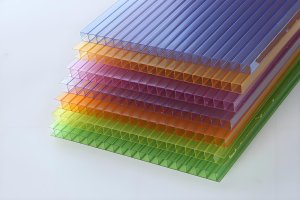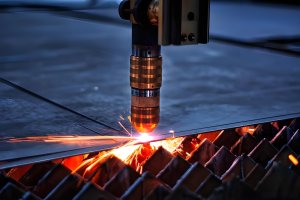Brief Overview of Engineering Plastics
Engineering plastics are a group of plastic materials that have better mechanical and thermal properties than the more widely used commodity plastics (such as polystyrene, PVC, polypropylene, and polyethylene). Being more robust, durable, and resistant to high temperatures, they are often employed in applications that require superior performance. Typical engineering plastics include acetal, nylon, ABS, and polycarbonate. Each of these materials can function well under stress and strain conditions that would cause other plastics to fail, making them ideal for parts and components in machines, automotive industry, electronics, and construction.
Differences in Chemical Structure of Acetal Plastic and Delrin
Acetal plastic, also known as polyoxymethylene (POM), is a type of thermoplastic famed for its high strength, stiffness, and excellent machinability. On the molecular level, acetal can be synthesized as either a homopolymer or copolymer, which directly affects its physical properties. Delrin®, specifically, is a trademarked name for a range of POM homopolymers produced by DuPont. The key distinction between these two lies in their chemical structures; while Delrin maintains repeating -CH2O- units as a homopolymer, providing superior mechanical strength and thermal stability, acetal copolymers have both -CH2O- units and -CH2CH3O- groups that enhance the material’s chemical resistance and reduce deterioration from hydrolysis. These subtle differences in composition are critical when selecting materials for precision parts that must endure varying environmental stresses.
Acetal Plastic Basics
Acetal plastic, a synthetic polymer known for its high strength and stiffness, is characterized by its resistance to moisture, chemicals, and wear. This thermoplastic features low friction and excellent dimensional stability, making it ideal for precision parts that require tight tolerances. Typical applications of acetal plastics include gears, bearings, medical devices, electrical components, and various industrial machinery parts where consistent performance and longevity are critical.
Delrin: A Specific Type of Acetal
Delrin, a brand name given by DuPont for its series of acetal homopolymer resins, stands out within the family of acetal plastics due to its enhanced mechanical properties. Unlike many other generic acetals, Delrin possesses higher tensile strength, stiffness, dimensional stability, and resistance to fatigue. These unique features make it highly favored in precision parts that require high durability, such as gears, fasteners, and bushings commonly found in the automotive and consumer electronics industries. Its natural lubricity also lends itself to applications like medical devices where low friction is crucial.
Comparison Between Acetal Plastics and Delrin
Understanding the differences between conventional acetal plastics and Delrin is crucial when selecting materials for engineering projects. Chemically, both acetal and Delrin belong to the polyoxymethylene (POM) family; however, Delrin, often referred to as homopolymer POM, is composed of a single type of monomer unit which contributes to its slightly higher mechanical strength compared to the copolymer composition of standard acetal plastic. In terms of performance characteristics, Delrin generally exhibits superior wear resistance, tensile strength, and temperature tolerance, making it more suitable for applications subject to demanding operational conditions. Conversely, acetal copolymers might be selected for their enhanced stability in highly alkaline environments or where lower material costs are prioritized. When choosing between these materials, engineers must weigh factors such as project-specific requirements and environmental exposures to determine the most appropriate selection.
Distinguishing Acetal Plastic from Delrin
Acetal plastic and Delrin are often confused due to their similar properties, but they differ mainly in terms of production and performance characteristics. Acetal is a generic name referring to polymers formed by the polymerization of formaldehyde into a thermoplastic resin, known as polyoxymethylene (POM). Delrin, on the other hand, is a trade name for POM produced by DuPont with specific enhancements. It is an acetal homopolymer that stands out due to its higher mechanical strength, stiffness, and dimensional stability compared to copolymer acetals, which contain comonomers such as ethylene oxide. A common example illustrating these differences can be observed in applications requiring precision gears — where Delrin’s superior fatigue resistance and low friction make it more suitable than standard acetal copolymer products.
Factors Influencing the Choice Between Acetal Plastic and Delrin
When deciding between acetal plastic and Delrin for a specific application, several factors must be considered to ensure optimal performance and cost-efficiency. The environmental conditions where the material will be used are crucial; this includes assessing the exposure level to heat, moisture, and various chemicals that could potentially degrade the plastic. Mechanical requirements are equally important, such as the needed impact strength to resist breakage upon force and the dimensional stability over time, ensuring the component maintains its shape under mechanical stress or thermal changes. Lastly, economic considerations cannot be overlooked—the difference in costs and the availability of both materials may sway the decision, especially when managing large-scale production or projects with tight budget constraints.
Other Articles You Might Enjoy
- Understanding Delrin: A Comprehensive Guide to the Versatile Engineering Plastic
Understanding Delrin and the Role of Engineering Plastics Delrin, formally known as Polyoxymethylene (POM), is an engineering plastic renowned for its high tensile strength, rigidity, and resilience against friction and…
- Delrin: The Engineering Marvel in Plastic Innovation
Introduction to Delrin Delrin, a trade name for polyoxymethylene (POM), stands as a groundbreaking synthesis in the world of engineering polymers. Renowned for its high tensile strength, stiffness, and dimensional…
- Difference Between CNC and Manual Machining
Humans do not like change. Some people were unwilling to let go of their slide rules after calculators were created. While CNC machining has been around for decades, some still…






